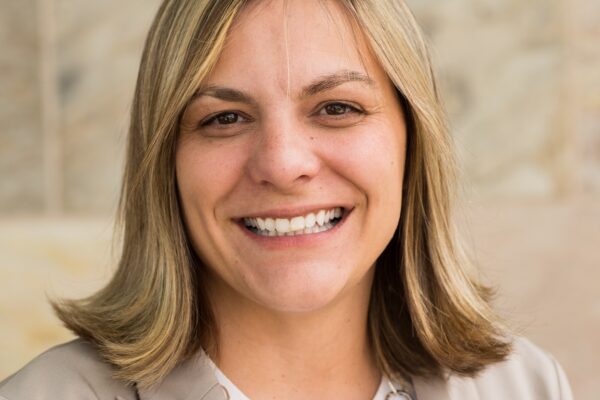I’ve worked with the ACLU of Montana for nearly 11 years, and have read heart-wrenching intake complaints from across state for years. But, what I’m reading from incarcerated people and their families in response to COVID-19 is about as heart-wrenching and unjust as I have ever seen.
Over the past month, the ACLU of Montana has received dozens of complaints from people currently living in prison, jail, or a pre-release center, or from family members who reached out on behalf of their loved ones.
They are scared for their lives. They are concerned that more isn’t being done to protect them from a possible outbreak. They are worried that they are being forgotten about. They feel emotionally abused by how they are being treated. And, they feel powerless in their situations.
Many shared that they have pre-existing medical conditions -- including asthma, sleep apnea, COPD, Hepatitis C, autoimmune disease, cerebral palsy -- that make them more vulnerable to COVID-19.
The complaints we’ve received echo each other. Many people are not getting the medical attention they need. Some are sleeping in over-crowded rooms, and many wrote that it is physically impossible to follow the advice of public health experts.
A number of people wrote in that they are concerned that the risk of COVID-19 is not being taken seriously by correctional officers. Many said that correctional officers were not wearing masks. One person heard bragging from correctional officers that they were receiving hazard pay while they made jokes about prisoners catching COVID-19. Another person, with asthma, overheard jokes from the correctional officers about killing prisoners by airing the virus through the vents. Yet another said they were concerned that correctional officers were working while sick, not wearing masks, and handling food and medications with bare hands. Others were concerned that, even after a staff member contracted COVID-19, incarcerated people were still not being tested.
A number of people wrote that they don’t have access to clean drinking water. Others said there are not enough cleaning products. Still others wrote that they are receiving incorrect information about how to prevent the spread of the disease.
One prisoner started documenting some of these conditions, including the name of the guard, and he was threatened that he’d be written up if he continued.
We just need to look at what has happened in other states to know that it is not an exaggeration to say that these people are facing possible death sentences. One prisoner in Montana informed us that he was asked to fill out paperwork informing the facility who his personal belongings should be sent to if he were to die due to the Coronavirus. Why then, isn’t more being done to make sure that nobody dies?
Many of these folks have family members waiting for them to come home. One incarcerated man -- slated to be released in seven months -- mentioned that his wife is pregnant and alone. Many people said they have less than a year to serve before they will be released to their families and communities. Some of them are in jail because they can’t afford to buy their freedom. Some are incarcerated because they missed a court date when they were on parole. And some would be eligible for parole except that they can’t access required programming – either because of COVID-19 or simply lack of classroom capacity. They are all scared for their lives. Maybe some made mistakes and got caught, some are likely in prison even though they are innocent, some should have been released long ago, but got stuck in this system from which it is nearly impossible to escape. Regardless of each personal situation, not one of these people should be facing the risk of dying from COVID-19 while incarcerated.
One woman, writing to us on behalf of her husband who is incarcerated after being convicted of a non-violent crime, said “it makes me sick and sad to think that our government thinks any human life is not worth saving at times like these.” Another person advocating for her father’s release (who has less than a year before he is to be released) said she is “more desperate than ever.”
The state has a responsibility and more needs to be done to protect the lives of Montanans. Governor Bullock’s latest directive continued to call for social distancing but failed to mention the risk to people incarcerated or in pre-release centers. We know that at least some incarcerated people have tested positive for the virus. But we don’t know whether testing is being deployed in correctional settings. That’s why we submitted public records requests seeking information about the COVID-19 response in state-run facilities.
The guidance we provided more than a month ago to the Governor still is the right thing to do. People who are not a threat to public safety should be released. Tell the Governor that this is important and ask him to take action.

